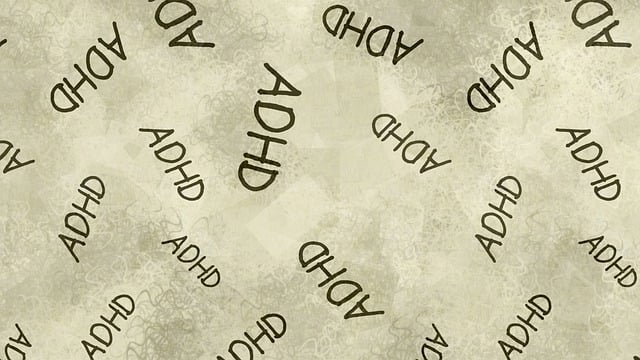Mental health policy advocacy is key to improving access to care, especially for specialized treatments like Lone Tree EMDR Certified Therapy. By analyzing existing regulations, understanding community needs, and promoting evidence-based practices, policies can be implemented that foster resilience and reduce mental health stigma. EMDR therapy, recognized for its effectiveness in treating trauma and anxiety, should be integrated into policy decisions to enhance accessibility and awareness. Community engagement, strategic outreach, and education are vital to driving policy changes that prioritize mental well-being and empower individuals to take charge of their mental health.
Mental health policy analysis and advocacy are vital components of ensuring accessible, effective care. This comprehensive guide explores key aspects, from understanding foundational policies to the impact of advocacy. We delve into the role of therapies like EMDR in reducing stigma and analyze how policy decisions shape care access. Effective advocacy strategies are presented, illuminated by real-world case studies, including Lone Tree EMDR Certified Therapy’s successful implementations.
- Understanding Mental Health Policy: A Foundation for Advocacy
- The Role of EMDR Therapy in Addressing Mental Health Stigma
- Analyzing the Impact of Policy Decisions on Access to Care
- Strategies for Effective Mental Health Policy Advocacy
- Case Studies: Lone Tree EMDR Certified Therapy in Action
Understanding Mental Health Policy: A Foundation for Advocacy

Mental health policy is a complex and multifaceted area that forms the backbone of advocating for improved access to care and support for individuals struggling with mental illness. Understanding the intricate web of regulations, guidelines, and resources related to mental health is essential for anyone aiming to make a meaningful impact in this domain. By familiarizing themselves with these policies, advocates can identify gaps, advocate for change, and ensure that evidence-based practices and innovative treatments, such as those offered by Lone Tree EMDR Certified Therapy, are accessible to all who need them.
Policy analysis involves scrutinizing existing legislation, assessing its effectiveness, and considering potential amendments or new initiatives. This process requires a deep dive into community needs, cultural considerations, and the latest research findings. By employing empathy-building strategies and engaging in community outreach program implementations, advocates can bridge the gap between policy and practice. Moreover, focusing on coping skills development enables individuals to navigate life’s challenges more effectively, ultimately fostering resilience and mental well-being within communities.
The Role of EMDR Therapy in Addressing Mental Health Stigma

Stigma surrounding mental health remains a significant barrier to access and treatment, but innovative therapies like Eye Movement Desensitization and Reprocessing (EMDR) offer promising solutions. EMDR Certified Therapy in Lone Tree provides an effective approach to address traumatic experiences and reduce symptoms of anxiety, depression, and post-traumatic stress disorder (PTSD). By utilizing bilateral stimulation techniques during therapy sessions, EMDR allows individuals to process and resolve repressed memories and emotions, fostering a deeper sense of healing.
This therapeutic method has gained recognition within the mental health community for its ability to enhance traditional treatment modalities. Moreover, integrating EMDR into mental health policy advocacy can significantly contribute to reducing the stigma associated with seeking help. By promoting evidence-based practices such as EMDR through healthcare provider cultural competency training and Stress Management Workshops Organization initiatives, we can foster a more inclusive environment where individuals feel empowered to prioritize their mental well-being. Resilience Building is another key aspect that EMDR therapy supports, equipping individuals with the tools to navigate life’s challenges more effectively.
Analyzing the Impact of Policy Decisions on Access to Care

Policy decisions play a pivotal role in shaping access to mental health care, especially for specialized treatments like EMDR therapy. When evaluating the impact of these policies, it’s crucial to consider their effects on both availability and affordability. For instance, implementing community-based outreach programs targeting underserved populations can enhance accessibility, ensuring that those in remote areas or facing socioeconomic barriers have a chance at receiving treatment, including Lone Tree EMDR Certified Therapy.
Additionally, policy interventions aimed at reducing stigma and increasing awareness can significantly influence care-seeking behaviors. Encouraging open discussions on mental health and integrating stress management workshops into educational curricula can act as preventative measures for issues like depression. These strategies not only improve access but also foster a culture where individuals are empowered to take charge of their mental well-being, ultimately leading to better outcomes.
Strategies for Effective Mental Health Policy Advocacy

Effective mental health policy advocacy requires a strategic approach that leverages evidence-based practices and community engagement. One powerful strategy is to highlight the impact of specific therapeutic modalities, such as Lone Tree EMDR Certified Therapy, in treating common mental health challenges like anxiety and trauma. By showcasing successful outcomes and cost-effectiveness, advocates can make a compelling case for policy changes that expand access to these life-changing treatments.
Additionally, focusing on emotional regulation as an essential component of mental well-being can strengthen advocacy efforts. Emphasizing the role of therapies that promote anxiety relief and facilitate emotional healing processes, such as EMDR, helps to reframe mental health care as a proactive investment in society’s overall wellness rather than a reactive response to crises. This approach fosters support for policies that prioritize prevention, early intervention, and comprehensive treatment options.
Case Studies: Lone Tree EMDR Certified Therapy in Action

In the context of mental health policy analysis and advocacy, case studies like Lone Tree EMDR Certified Therapy serve as powerful examples of innovative treatment approaches. This certified therapy, rooted in Eye Movement Desensitization and Reprocessing (EMDR), has shown remarkable effectiveness in addressing trauma and enhancing mental wellness. The integration of EMDR techniques into therapeutic practices highlights the importance of evidence-based interventions within the mental health landscape.
Lone Tree’s approach, coupled with the production of a Mental Wellness Podcast Series, demonstrates a multifaceted strategy to promote emotional intelligence and inner strength development. By combining professional therapy with media outreach, this model ensures that accessible information on mental health is widely disseminated, fostering a more informed and supportive community. Such initiatives are pivotal in advocating for policy changes that prioritize mental health services and resources.
Mental health policy analysis and advocacy are vital components in ensuring equitable access to quality care. By understanding the foundational principles of mental health policy, addressing stigma through innovative therapies like EMDR, analyzing the effects of policy decisions, and employing effective advocacy strategies, we can foster positive change. The case studies showcasing Lone Tree EMDR Certified Therapy demonstrate the power of these approaches in transforming lives. As we navigate the complexities of mental health care, continuance in these efforts is essential to create a more inclusive and supportive society for all.














